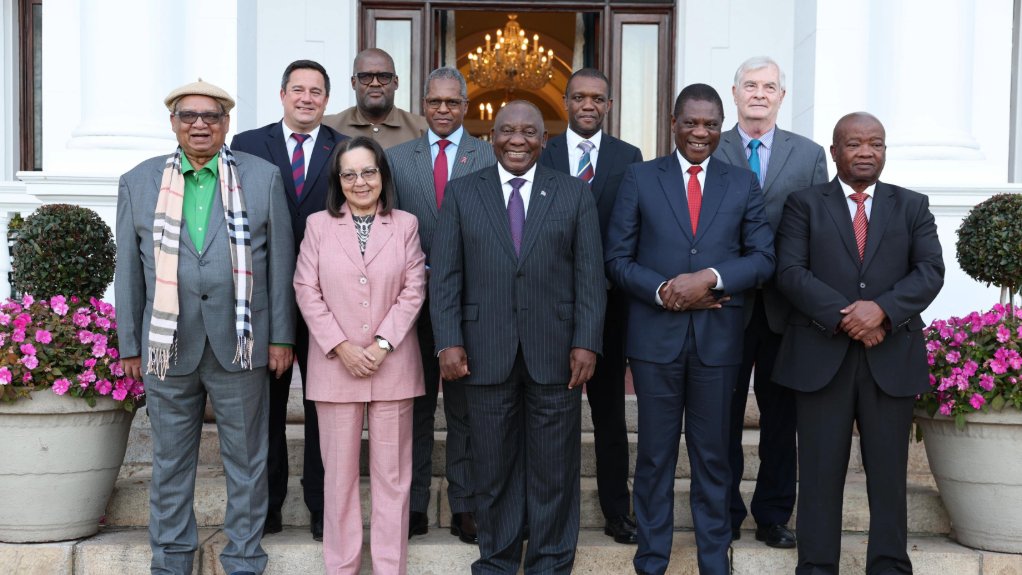The Economic Freedom Fighters (EFF) has said Statistics South Africa’s (StatsSA’s) official unemployment rate, released on Tuesday, is more evidence that the Government of National Unity (GNU), which is nearly a year into office, has failed to put in place any practical plan to create jobs and address the unemployment crisis in South Africa.
StatsSA reported that the official unemployment rate stood at 32.9% for the first quarter of this year, compared with the official unemployment rate of 31.9% for the fourth quarter of 2024.
Further, the expanded unemployment figure worsened by 1.2 percentage points quarter-on-quarter to 43.1%.
According to the report, the total number of employed persons stands at 16.8-million.
The three industries that employ the most people remain trade with 3.2-million, community and social services with 3.9-million and finance with 3-million.
“…however, this quarter has seen a net job loss of 291 000. Major declines were recorded in trade down by 194 000, construction down by 119 000, and private households down by 68 000. This sharp drop in employment is a clear sign of an economy with no prospects of meaningful growth, trapped in a cycle of informalisation and casual labour that denies our people dignity and security,” said the EFF.
The party does not believe the GNU has a credible plan to turn the situation around.
It described the GNU as a coalition of “austerity, privatisation, and cowardice” and said those party leaders agreed on a Budget that deepens cuts to social infrastructure, does not support industrialisation, and offers no real intervention to grow the economy or create decent jobs.
“It is a neoliberal pact with capital, not a contract with the people,” the EFF said.
Young people continue to face the worst of unemployment, 4.9-million young South Africans aged 15 to 34 are unemployed, and 45.1% of youth in this age group are not in employment, education, or training (NEET).
Among the 15- to 24-year-olds, the NEET rate now stands at 37.1%, up from 31.1% in 2018.
The EFF said there was also a worrying increase in graduate unemployment, which it said had risen to 11.7%, showing that even education no longer guarantees opportunity.
“The EFF maintains that unemployment in South Africa remains racial in character. Black Africans bear the heaviest burden, with an expanded unemployment rate of 46.3%, far above the national average of 43.1%,” the EFF said.
The party said this reflected a deeply unequal economy that continued to exclude the black majority from full participation.
The party also expressed concerns with women continuing to suffer structural exclusion and exploitation.
“Black African women have the highest unemployment rates, with over 39% out of work. They are the backbone of South Africa's economy – propping up underpaid sectors such as domestic work, retail, and care work – yet they remain the most disrespected and most disregarded. This systemic oppression feeds social ills, including gender-based violence, poverty, and the broader collapse of family and moral structures,” the EFF said.
The EFF highlighted that the situation has now worsened compared to when President Cyril Ramaphosa was first elected as President in 2018.
“Then, the number of employed persons was 16.5-million - 300 000 fewer than today, despite the population growing by over 3.5-million. The unemployment rate in 2018 was 27.1%, official and 37.0% expanded, compared to today's 32.9% and 43.1%, respectively. In Quarter 4 of 2018, there were 6.1-million unemployed persons, compared to 8.2-million today—an increase of over 2-million jobless people in six years,” the party said.
EMAIL THIS ARTICLE SAVE THIS ARTICLE ARTICLE ENQUIRY
To subscribe email subscriptions@creamermedia.co.za or click here
To advertise email advertising@creamermedia.co.za or click here











